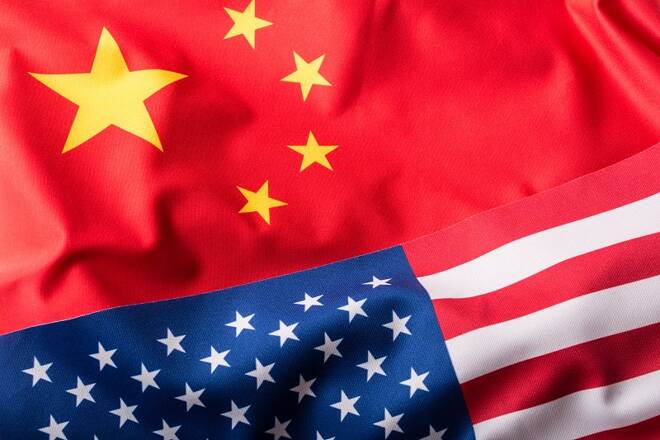Advertisement
Advertisement
Globalization vs Protectionism – The National People’s Congress Gets Underway
By:
China's National People's Congress gets underway this morning. Beijing may well send the U.S administration a clear message.
Protectionism, the Trump Way
While the U.S administration goes about its business rebalancing world order and delivering promised protectionism to the land of the free, the Chinese government is looking to do the reverse. Beijing has been in the process of counteracting attempts at removing the concept of globalization that had been created by Trump’s predecessors in history.
Of greater irony, once the dust settles and people look back over the last few years, will be one very simple truth. The U.S President himself was able to run for office and win because of the very concept of globalization. Trumps’s earnings would certainly not have come about in their shape or form had it not been for the NY real estate market and his global real estate empire.
While the principle of the Republican’s 4-year term is to give America back to the people, there’s a long way to go.
To be completely honest, one does even wonder whether it is even achievable. Minimum wage and skilled labor are certainly two hindrances for the U.S economy to become self-sustainable. It makes it particularly challenging for the American people to have access to the very same products at the very same prices.
In the worst-case scenario, governments and economies will likely have to march to Trump’s tune and agree to be more accommodative over the next few years. A few more jobs may be created as overseas multi-nationals expand operations into the U.S, but whether there will be a material shift remains to be seen.
The bigger question is whether the U.S can survive a global onslaught. Trump certainly shot the first round in the latest trade war, but he will he have the final say?
Globalization, the Beijing Way
In stark contrast to the material shift in U.S foreign policy, Beijing has widened its doors to the treasure trove just that little bit more over the last 12-18 months.
It’s perhaps not gone as smoothly as Chinese Premier Xi had hoped. But, with China now having a vested interest in opening its doors, will the U.S plans for making America great again actually come undone.
China’s National People’s Congress assemble for 10-days starting this morning and there’s plenty of work to do.
Growth will be high on the agenda and we can expect foreign investment into China to be a close second.
The Chinese government has made a number of concessions in a bid to bring the trade war to an end. Some members of the Assembly likely consider the concessions a loss of face for the Chinese Government.
How Beijing plans to tackle slowing growth will not only be key domestically but also for the international markets. Weaker demand for Chinese goods doesn’t bode well for the economies reliant on Chinese demand for natural resources and components.
What to Look Out For
A realistic plan to deliver sustainable growth at current levels will be key. Support through fiscal policy would likely be a tick in the first box, as far as the markets are concerned.
The Assembly may even look to relax credit rules to support growth. Such a move would come in spite of China’s corporate debt levels. China’s corporate debt levels remain a major concern for financial institutions and the Beijing government itself.
Next up would have to be the issue of corporate espionage and protection of intellectual property. China could well open the door further by easing rules on foreign investment. The U.S has upped the ante on Hua Wei. While other governments have raised similar concerns, can Beijing incentivize a softer stance?
There are few multi-national companies that would not jump at the chance of direct access to the Chinese market.
If the U.S wants to close its doors to foreign investment, who better than for China to open their own. As trade negotiations progress, uncertainty remains over Hua Wei CFO Wanzhou. It will certainly be interesting to see whether there is any ruffling of Washington’s feathers.
European growth is slowing and the chances of U.S tariffs on EU goods ever present. The EU could do with more friendly access to the world’s second-largest economy.
Until now the U.S administration has had a material influence on risk sentiment across the global financial markets. This year’s assembly could become the most influential of them all. It’s an auspicious one, with this year’s assembly being number 13…
The Chinese economy saw the slowest growth since 1990 last year. Unlike Trump, however, Chinese Premier Xi now has the freedom to head office without term limits. Unlike the U.S, China is not going to reverse any decisions made over the next fortnight.
About the Author
Bob Masonauthor
With over 28 years of experience in the financial industry, Bob has worked with various global rating agencies and multinational banks. Currently he is covering currencies, commodities, alternative asset classes and global equities, focusing mostly on European and Asian markets.
Advertisement
